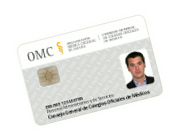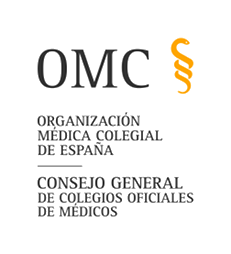What is it?
The new applications of the so-called health IT, such as the electronic prescription, the shared medical record, or the living will, raise new scenarios for professional institutions like the OMC (Spanish Medical Association), which must react to these very important challenges and be able to continue fulfilling their duties of regulating professionals.
To be the benchmark in this sector and in the implementation of solutions to these challenges to enable professionals to face them with solvency is the mechanism that ensures the OMC its continuity in independently fulfilling its regulatory role in the new digital era.
On the other hand, given the great sensitivity of health information, the need for security is particularly high, regarding the doctor's duty for professional secrecy, as well as the pressure of access – not always desirable – to uncontrolled information. In this respect, the professional electronic certification should be considered a core factor in building trustworthy digital services.
The registered doctor’s card with digital certificate and electronic signature thus becomes a solution created by and for doctors, a key to secure and reliable universal access to the health services which furthermore permits the development of new services, fully respecting the rights of patients.
Advantages
The new registered doctor's card will permit:
- Certifying the doctor's status, specialities and professional competencies in the face-to-face and electronic areas.
- Protect the intimacy and personal data of patients and professionals.
- Protect the secret of business information.
- Guarantee the authenticity of the health information.
- Guarantee the mobility of professionals and patients.
- Secure and controlled access to health information.
- Secure access to telematic applications such as the electronic prescription, the computerised clinical record or the living will.
- Carry out secure and controlled exchanges of health information.
- Relate at distance with public administrations, partners, suppliers and patients.
- Ensure the possibility of exploiting health information.
- Preserve and safeguard health information.
- Permit the free movement of professionals and recognition in Europe and the United States in a very near future.
All these guarantees work out as guarantees for citizens and give prestige to the role of the professional organisations:
- Universal access to the health services irrespective of the place of residence.
- Facilitate formalities which in the past required personal presence.
- Reliability of the data of professionals and security in access to confidential information.
- Higher levels of patients' confidence in the health system and in the doctor-patient relation.
How to achieve this?
The Official Medical Associations are the corporations in charge of registering and organising professionals in face-to-face life. The Medical Associations must continue to regulate this registration role in the framework of e-health by managing and distributing the new registered doctor’s card. Ask at your Medical Association for this.


